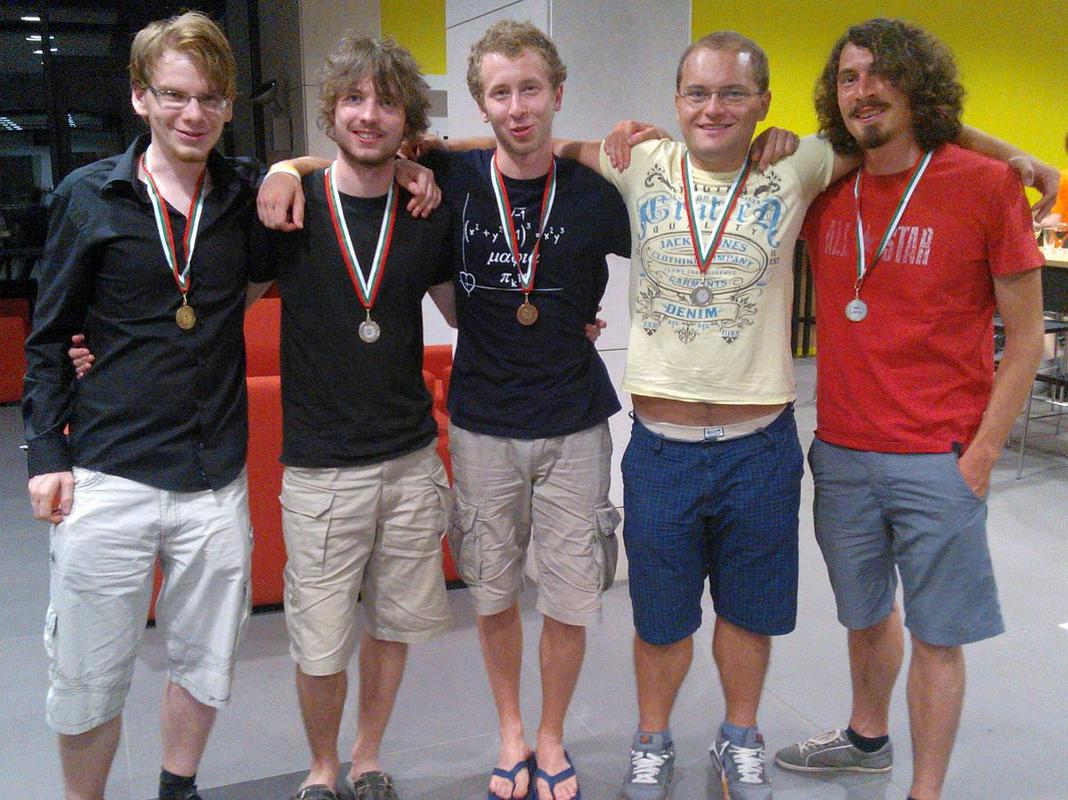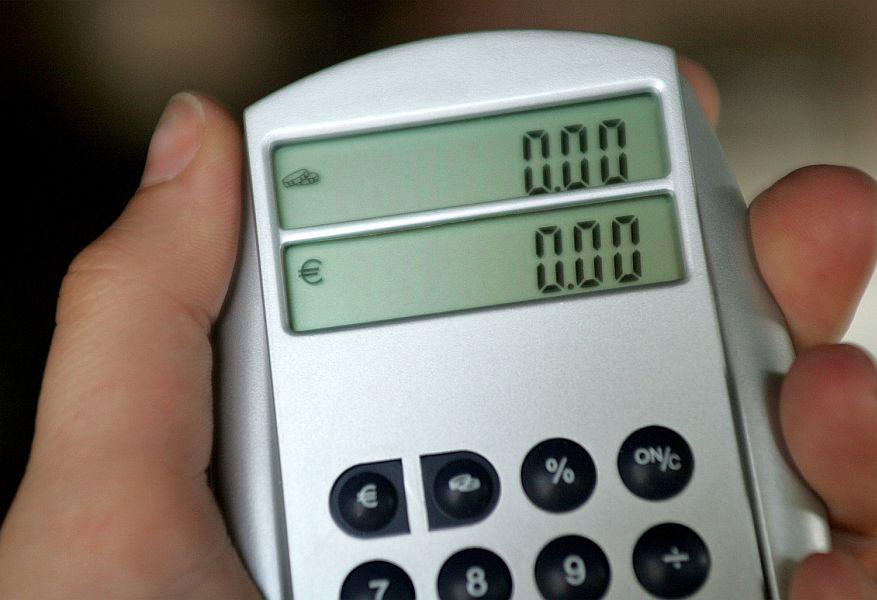

“
The 22-year-old student is very good at a subject which is said to be most hated by the majority of schoolchildren – mathematics. As a student of the Faculty of Mathematics and Physics, Department of Mathematics, last summer in Bulgaria he represented the University of Ljubljana in an international competition between students of mathematics and received the first prize.
“I’ve always been most attracted by the fact that solving difficult mathematical problems posed kind of a challenge to me. I like it when I can come up with solutions by my own thinking,” Mr Aleksandrov describes his love for mathematics.
Want to find out more? Read the interview below.
Last summer, you took part in an international competition between students of mathematics, and received the first prize. In short, what was the competition like – how many tasks did the exam comprise, how much time did you have to complete them, and when did you get your exam results? Last summer, you took part in an international competition between students of mathematics, and received the first prize. In short, what was the competition like – how many tasks did the exam comprise, how much time did you have to complete them, and when did you get your exam results?
The competition is held every year at the end of July, in Bulgaria – the city of Blagoevgrad, to be precise. The participants are students from different parts of the world. (Unlike competitions between secondary schools, the students represent their universities rather than countries.) Most of the students are from European universities, but there are also students from the USA, Brazil, Israel, Iran, Indonesia, Vietnam, and other countries.
Last year, for the first time the competition was entered also by the Chinese, who are known for being almost unbeatable in maths competitions between secondary schools. The competition takes place over two days. Each participant is given five mathematical tasks and five hours of time to solve them. These are difficult tasks, but not demanding in terms of high-level theoretical knowledge. Greater emphasis is placed on techniques of solving problems, and constructive thinking. The first unofficial results are known as early as after the first day, and then the competitors have one more day to appeal against the results. The whole event takes place for about a week. On other days, the organizers choose tasks, prepare answers to them and announce the results. During that time, the students have time to socialize, relax and have fun.
How many students took part in the competition? How did you enter the competition?
There were 321 competitors. Slovenia was represented by 10 students – 5 from the University of Ljubljana, and 5 from the University of Primorska. No formal qualifications were held at my university. The students were chosen on the basis of the grade point average at the faculty, and professors’ opinions. A selection was made of students who had finished at least the second year of the faculty.
At the same time, an unofficial competition between universities was held. Each university was evaluated by the sum of points won by its three best competitors and an average sum of points won by all its competitors. The University of Ljubljana was ranked 19th out of 72 participating universities. How do you assess the quality of your university in comparison with others, and what differences have you noticed?
According to the information received by my friends and acquaintances who are studying abroad, graduate study programmes at our faculties are quite comparable with those provided at better foreign universities. The difference may be the fact that the majority of students attending best universities are very good. This increases more pressure, a competitive atmosphere and, consequently, a quicker increase of progress in knowledge.
However, in Slovenia the atmosphere is rather calm. Greater differences arise in master’s and doctoral study programmes. The problem is that too little students are enrolled in the study programmes, where mathematics is divided into several subfields. Each student specializes in one particular area, for which they can hardly find adequate lessons or tutors to provide them guidance. We have quite some very good professors who are internationally acknowledged mathematicians. Despite this, the field of mathematics is too big, but there are too little students.
From your point of view, what is it that you are so much attracted by mathematics?
I think I’ve always been most attracted by the fact that solving complex mathematical problems posed kind of a challenge to me. I like it when I can come up with solutions by my own thinking. Moreover, I’ve always liked taking part in various competitions in maths.
Usually, mathematics causes greatest problems to Slovene schoolchildren – they often have to retake a maths exam or repeat the year. Where do you see the reason for this – in schoolchildren or the educational system that fails to make maths understandable to them?
Unfortunately, in my opinion it would be impossible to make maths understandable to all schoolchildren and students. What I think is more important is that those who are good at maths and like it should not be distracted from it. This should be teachers’ task. Since the learning system in Slovenia isn’t the optimum, it’s important that mathematics teachers additionally encourage and motivate those students.
You have also participated in international computer science competitions. What role does information science have in your life?
Computer science, mostly programming, is in fact very closely-related to mathematics, where a lot of logical and abstract thinking is also done. Moreover, programming is nowadays one of the basic tools for mathematicians. I learnt to program at secondary school, and as early as then I became very enthusiastic about it. Then, I also participated in competitions in that field. Later, I decided to take up a study of mathematics rather than computer science. Still, I like to engage with computing both at the faculty and in leisure time.
In your opinion, how does the present society accept a teenager as a scholar? Is it nowadays easier to grow up like “a cool dude”, or “a geek” and “a swat”? When are teenagers brought under greater pressure?
“In my opinion, the society is not aware enough of the development of young and competent people. Rather, they pay attention to those people, who are currently “cool dudes”. This is how it has always used to be. As regards the pressure that is built up during growing-up, I think this depends on each individual. Everybody takes their own decisions and consequently come under greater pressure.
How do you experience current atmosphere in Slovenia in terms of economy, society and politics?
In my view, I’m worried because the state is cutting investments into science and higher education. As a result, there are less possibilities for the students to be employed, as well as to work as academicians or researchers. Increasingly more people are looking for employment opportunities abroad, or in other professions.

































































